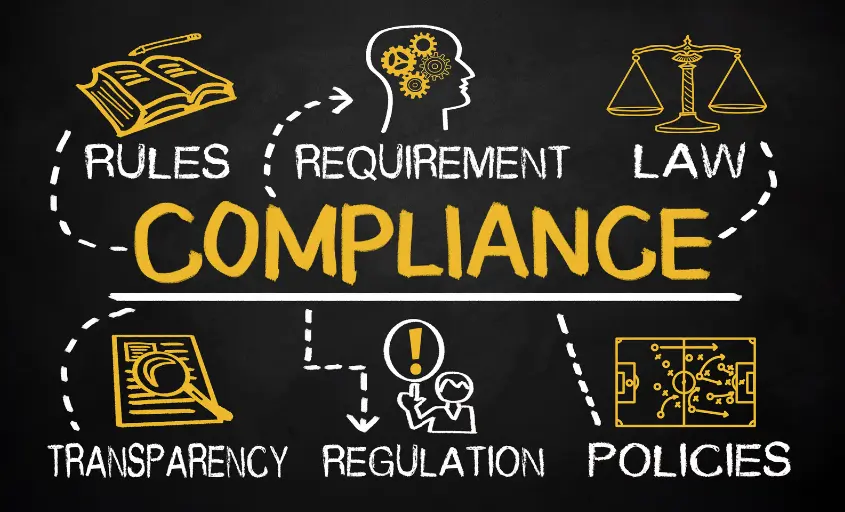“Privacy is not an option, and it shouldn’t be the price we accept for just getting on the internet.”
Gary Kovacs
Data privacy has become a paramount concern for organizations worldwide. As regulatory frameworks such as GDPR and CCPA impose stringent requirements, compliance management software integrated with AI presents a vital solution. This article delves into how AI-enhanced compliance management software can address data privacy issues, examining the complexities involved, technological advancements, and broader business implications.
The Challenge of Data Privacy Compliance

Data privacy regulations are designed to protect individuals’ personal information, ensuring it is collected, processed, and stored securely. However, adhering to these regulations poses significant challenges for organizations, particularly given the vast amounts of data they handle. The General Data Protection Regulation (GDPR) alone has resulted in fines exceeding €306 million since its implementation in 2018. The California Consumer Privacy Act (CCPA) has also set a high bar for data privacy, affecting countless businesses in the U.S.
Ensuring compliance with data privacy regulations involves several critical steps: data mapping, risk assessment, policy implementation, and continuous monitoring. Each step is complex and requires meticulous attention to detail. According to a report by Cisco, 97% of companies face significant challenges in achieving GDPR compliance, with similar difficulties reported for other privacy regulations.
AI-Driven Solutions for Data Privacy Compliance

Artificial Intelligence provides sophisticated tools to enhance data privacy compliance within compliance management software. One major advancement is the use of AI for data mapping and classification. AI algorithms can automatically identify and classify personal data across an organization’s systems, ensuring accurate data mapping and reducing the risk of non-compliance. This automated approach significantly reduces the time and effort required for manual data mapping.
Machine learning models are particularly effective in conducting risk assessments related to data privacy. These models analyze vast datasets to identify potential vulnerabilities and predict areas of non-compliance. For example, AI can evaluate the security measures in place for storing sensitive data and recommend enhancements to mitigate risks. According to McKinsey, organizations using AI for risk assessments see a 25% improvement in identifying and mitigating data privacy risks.
Natural Language Processing (NLP) further enhances data privacy compliance by analyzing unstructured data, such as emails, documents, and contracts, to ensure compliance with privacy regulations. NLP can extract relevant information and convert it into structured data, providing organizations with comprehensive insights into their data privacy practices. This capability helps organizations identify potential compliance issues that may be overlooked using traditional methods.
Real-World Applications and Business Benefits

Several compliance management platforms leverage AI to address data privacy issues effectively. For instance, OneTrust uses AI-driven data mapping and risk assessment to help organizations comply with GDPR and CCPA. OneTrust’s advanced algorithms analyze data in real-time, providing actionable insights and recommendations for data privacy compliance.
Another example is TrustArc, which employs AI to enhance data privacy compliance processes. TrustArc’s machine learning models analyze data privacy practices, identify potential risks, and suggest improvements to ensure compliance with relevant regulations. This AI-driven approach enables organizations to maintain robust data privacy practices and avoid costly regulatory fines.
In addition to addressing data privacy issues, AI-enhanced compliance management software offers several other benefits, including increased efficiency, reduced compliance costs, and improved decision-making. By automating routine data privacy tasks, organizations can allocate resources to more strategic initiatives. Furthermore, AI-driven insights enable organizations to make informed decisions based on real-time data, enhancing overall data privacy and compliance processes.
Conclusion

Addressing data privacy issues is crucial for maintaining compliance in today’s complex regulatory environment. AI-enhanced compliance management software provides advanced tools to ensure data privacy compliance through data mapping, risk assessment, and continuous monitoring. By leveraging AI-driven solutions, organizations can significantly reduce the risk of non-compliance and ensure robust data privacy practices.
Incorporating AI into compliance management not only addresses data privacy issues but also offers broader business benefits, including increased efficiency and reduced compliance costs. As such, organizations should consider integrating AI-driven compliance management solutions to stay ahead in an ever-changing regulatory environment.


